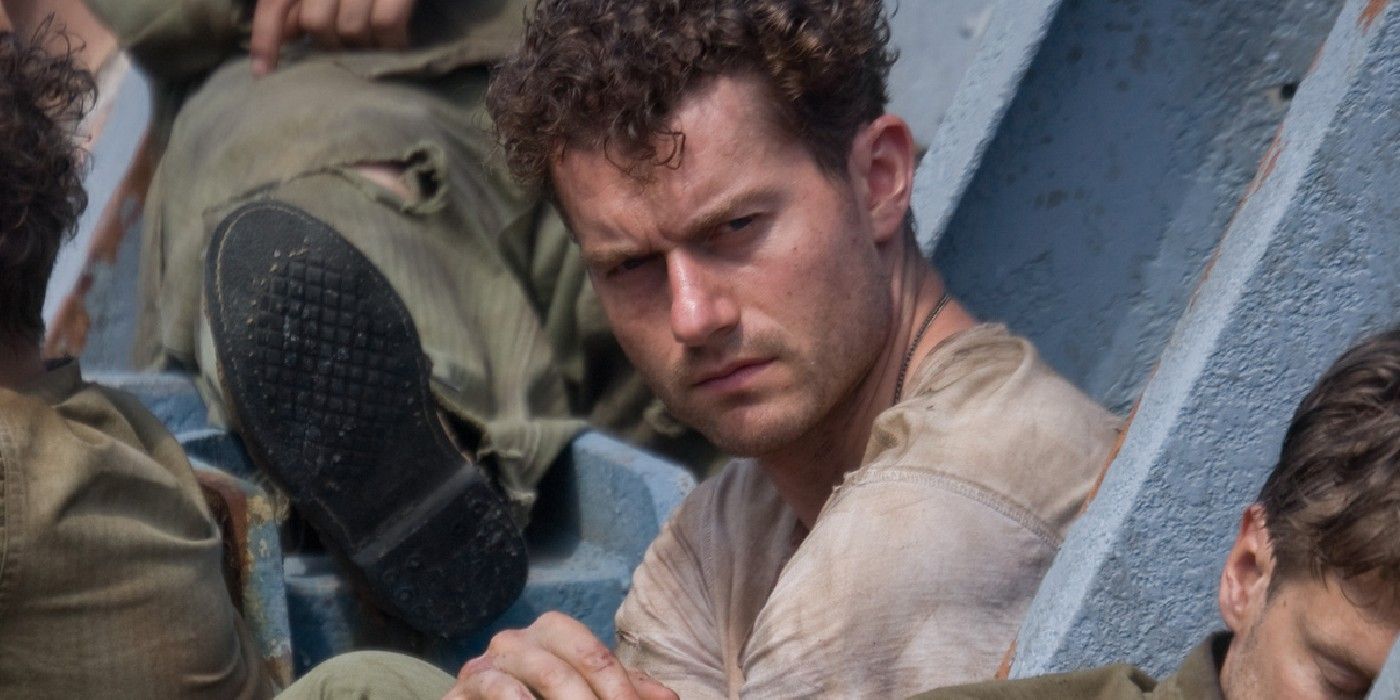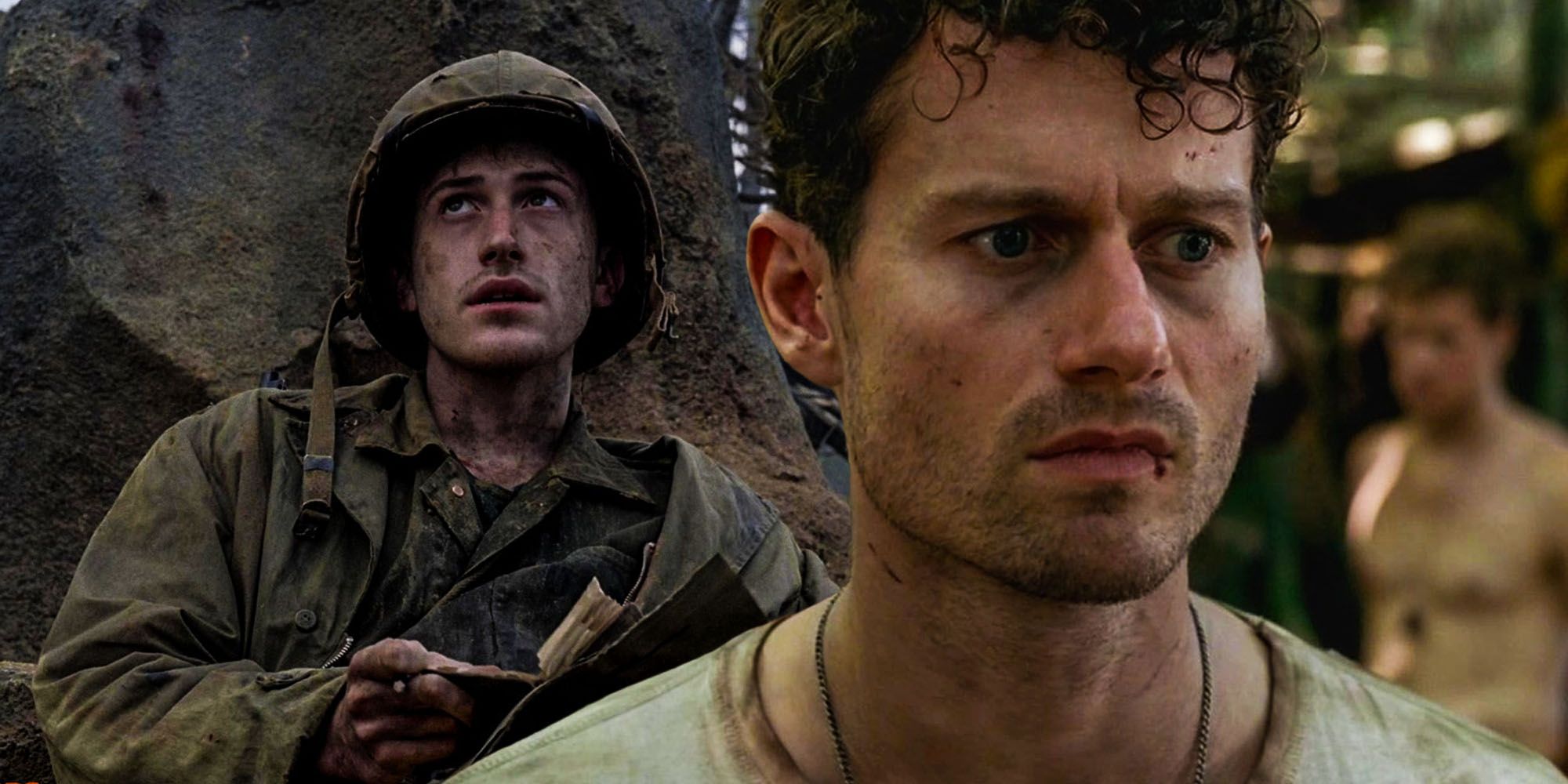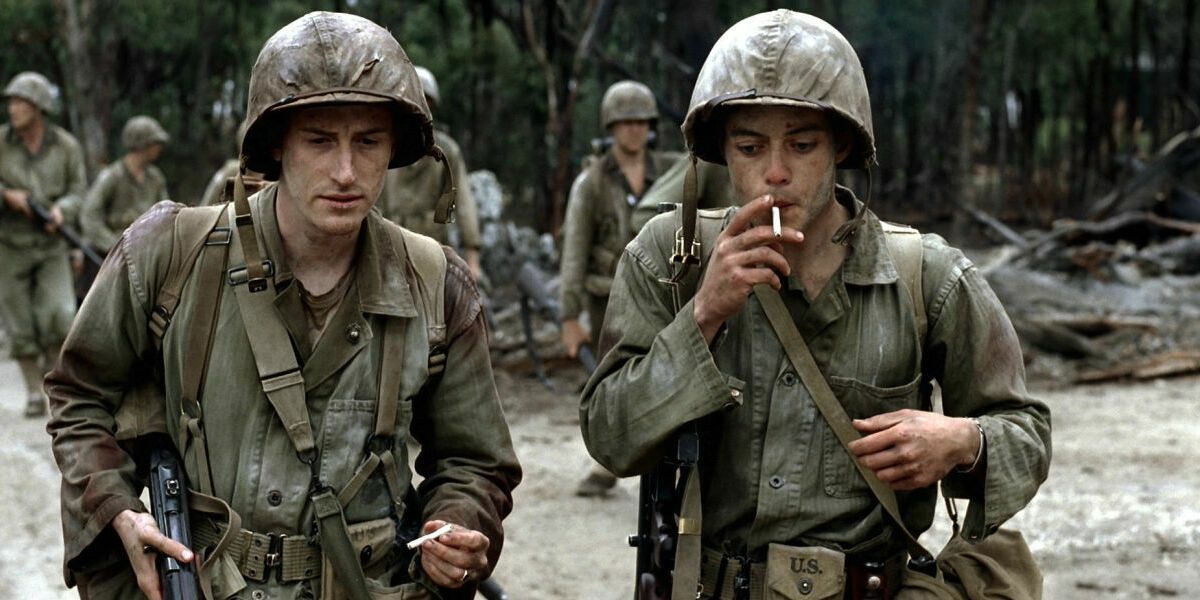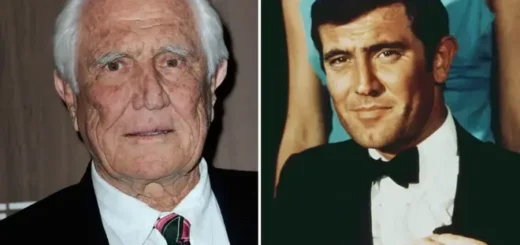After the success of Band of Brothers, The Pacific was created as a more brutal series focusing on the Pacific rather than European fronts in World War II. It covered the famously bloody campaign to take Iwo Jima, as well as the trauma that its soldiers faced. In the context of this less idealistic view of war, the series chose to explore the various mental and physical hardships its Marine Corps characters had to deal with. One of the core characters, Leckie, is diagnosed with a condition that The Pacific viewers watching it on its new streaming home — Netflix — might find surprising.
Robert Leckie Was Diagnosed With Nocturnal Enuresis In The Pacific
In The Pacific episode “Part Four,” Leckie has a row with Larkin over a stolen chest before the men notice that Leckie has unknowingly urinated in his trousers. This leads to Stern diagnosing him with nocturnal enuresis — bed-wetting — and telling him, unhelpfully, that the only thing he can do is try to “stay dry.” Later on, in a camp on Pavuvu, Leckie is found having wet his bed again. He is moved to a military psychiatric hospital on a nearby island for treatment, and his symptoms continue. Unnerved by the other patients and restless to return to the war, Leckie persuades the doctor to let him leave.
It makes sense that Leckie develops enuresis in The Pacific considering what his character goes through, particularly in “Part Four.” After the events of the Battle of Cape Gloucester, the men are stuck in an unbearable wait for enemy soldiers in relentless rain, which takes a toll on Leckie. He has to witness Gibson strangling a Japanese soldier to death. He’s further shaken up when he watches Lebec calmly hang out his clothes and then commit suicide. It’s clear to the doctor in the mental hospital that Leckie has been affected by the things he’s seen and partaken in. The relentless rain could also be a contributing factor, too.
Why Enuresis Was Common For Soldiers In WW2
After the battles of The Pacific, the miniseries shows Leckie going home and building a life for himself with partner Vera, as the real Robert Leckie did. However, this ending comes after a significant amount of trauma. Other characters, such as Eugene Sledge, carry this trauma through their lives. It’s no surprise, considering the horrors of World War II, that trauma — which enuresis stems from — was so common. However, enuresis was not just related to stress. Soldiers were left in unhealthy conditions. The extreme weather conditions of the Pacific Theater and lack of supplies increased the risk of tropical diseases. US History Scene explains:
Malaria, gastroenteritis, enuresis, sunstroke, and fever were among the many maladies that U.S. marines faced. Often, debilitating diseases were just as formidable an enemy as the ruthless Japanese soldiers.
What’s clear is that, like his real counterpart, The Pacific’s Leckie is thrown into the full horrors of war. Whether physically or mentally, he and his fellow soldiers weren’t going to emerge from that unscathed.





